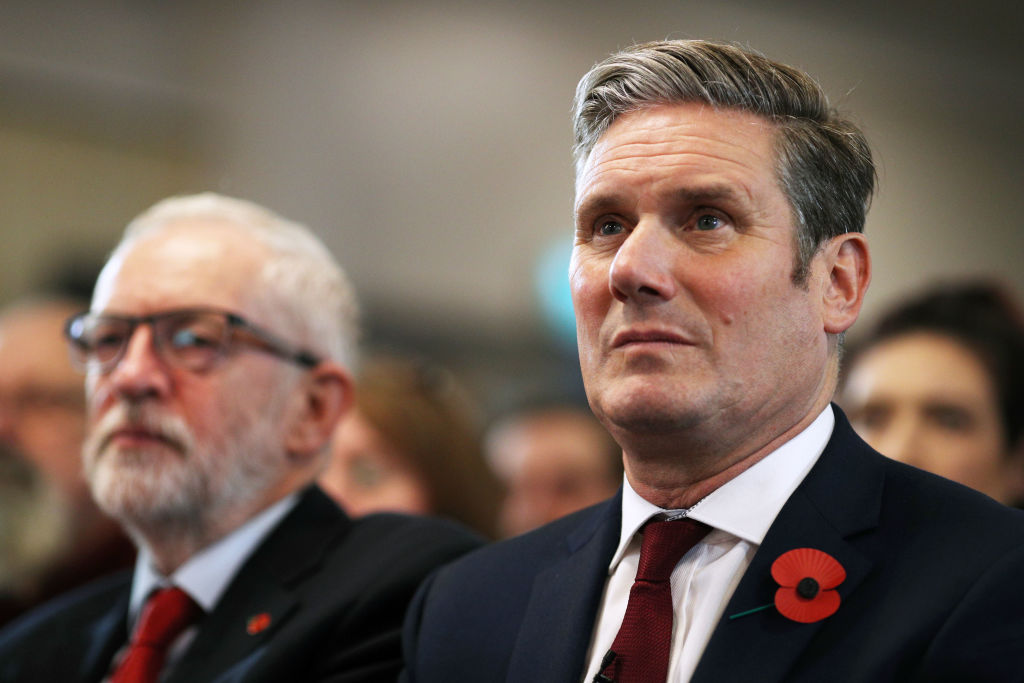Being a radical feels nice. You get to think you’re a morally superior being in a society full of evil-doers and sell outs. You can reduce the world to easily understandable, fixable problems. You get to reframe everything in life as good versus evil with you as the hero of the story. The only problem? It’s all a mirage. Human societies are complex and fixing them even more so. Affecting actual change requires compromise, both with others and with yourself. More than that, it takes courage – a courage that Keir Starmer is already demonstrating in his leadership of the Labour party. And one which was woefully lacking during Jeremy Corbyn’s time at the top.
Describing Corbyn as a coward is about the worst thing you can do in the eyes of his supporters – sure, call him incompetent if you must, but a coward? The man who stood up against the system for all those decades? But Corbyn’s lack of courage was not only an ongoing feature of his leadership but also an unspoken element in his political downfall.
Corbyn’s relationship with the media is a good place to start. Every Labour leader finds it tough out there, with a print media in Britain that is slanted rightward. Yet Corbyn chose, right from the start, not to even bother giving it a try. Instead of even attempting to engage with the mainstream press in any meaningful way, he mostly stuck to what he knew, which were grassroots leftist outlets with little reach. Again, some Labour leftists would describe this as some form of purity on Corbyn’s part. They might claim that the mainstream media were all against him from the start anyhow. In reality, he was just running away from the fight.
Early on in his leadership, he was such a relatively unknown entity, having been a backbencher the whole of his political life, that he would have got a fairer hearing than almost anyone else coming into such a senior role. The idea that he was doomed from the start with the media is nonsense; he created the problem by being evasive and snippy out of a sense of fear.
Immediately after the 2017 general election, I recall thinking that if Corbyn had stood on a platform with Yvette Cooper and talked about how the Labour party was now united, he would be the next prime minster. I believe it was fear that held him back from doing so. Fear of putting aside long-held internecine grudges in order to beat the Tories. Fear of no longer being the powerless yet pure backbencher and having to become the grownup who needs to make tough decisions and compromises. Had Corbyn found the courage to unite his party at the one moment he had the opportunity, things might have turned out differently for him – and for Labour.
Compare all this to Starmer’s approach so far. He has gone head on in trying to change Labour’s relationship with the mainstream media, which despite what anyone on social media wants to say about it, still matters a great deal. Many Corbynistas blanched recently at Laura Kuenssberg being taken in by Starmer’s charm – but this is part of the game whether they like it or not, and Starmer playing it well isn’t a sign of weakness but rather strength.
Then take Starmer’s approach to anti-Semitism within the Labour party. Some have attributed sinister motives for why Corbyn did so little to tackle this problem but I don’t agree. Again, I think what held him back was lack of courage. To tackle anti-Semitism properly, he would have had to have gone after people he considered allies or even close friends. It seems he didn’t have the stomach for it.
When faced with the same problem, Starmer didn’t flinch. He didn’t want to pick a fight with the left of his party, at least, not that fight at that moment, but he knew he had to do something. If he let Rebecca Long-Bailey get away with her tweet it would have shown that he didn’t really mean it when he said he would do whatever it took to stamp out anti-Semitism from his ranks. It was brave of him to do so given the risks involved in starting a row with the left of Labour so early in his leadership.
It takes courage to really understand your political enemy; to empathise enough with them to be able to know why people voted for another party that was not your own. Starmer has shown he gets this, while Corbyn never came close. Whether you like him or not, Keir Starmer has shown guts so far – and it’s one of the main reasons his personal ratings are as high as they are with the public at present. Courage still counts for something in politics, thank God.







Comments